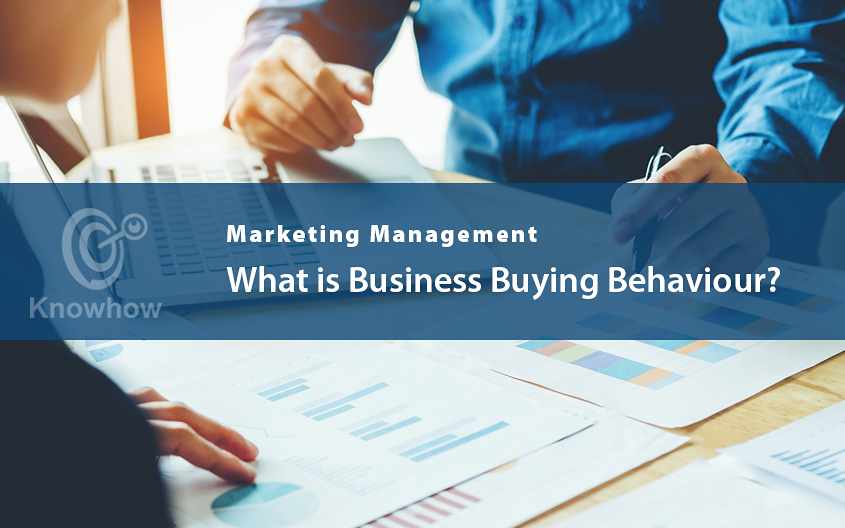
Analysing Business Markets and Business Buying Behaviour
The first thing you need to know about the market is that it is made of two segments — business markets and consumer markets. While companies do create products for the consumer market and focus mainly on it, the business market definitely deserves some attention. Business markets primarily consist of companies acquiring goods and services in order to produce other goods and services. Think plants, industrial equipment, machinery, and such. If you want to enter business markets, you need to learn all about relevant factors that affect them, as well as business buying behaviour.
When it comes to the overall value of the business market, it is far higher than the value of the consumer market. So it is definitely worth the time and the effort you would need to put in to enter it.
When it comes to characteristics, the consumer markets and the business ones are definitely not the same.
So, What is Business Buying Behaviour?
.
Basic Characteristics
- The buyer base is much smaller than in consumer markets.
- The relationship between the customer and the supplier is much stronger in business markets. That is mostly due to the fact that there are fewer customers and fewer suppliers than in consumer markets.
- Customers and suppliers are more mutually dependent when it comes to survival. For instance, if smartphone companies falter, companies that make graphics cards for them also suffer.
- When dealing with business markets, companies don’t just have to monitor their own markets but also consumer markets.
- Buying for an entire business is the responsibility of the purchase and acquisition departments. These departments must follow their company’s rules and guidelines. Unlike the situation on consumer markets, buying decisions here depend on numerous players from technical experts to the finance staff. All of this means that sales agents need to visit one business several times in order to present information to every relevant department.
- There are no distribution channels in business markets, which in turn reduces overhead costs.
All of these points prove one simple thing — business markets function differently than consumer markets.
The most relevant difference here is the buying decision. It is a lot more complicated thanks to the fact that it depends on many factors and different players. The only way for a buying decision to be fast is if a company is reordering from their previous supplier.
In business markets, companies keep a list of approved vendors from which they order when needed. Of course, this depends on their requirements at the moment. When a company wants to make a modification in comparison to their previous order, they tend to renegotiate the terms with their suppliers.
The Relevant Factors
Business buying behaviour depends on individual and interpersonal, economic, and company factors.
- Economic
Factors such as technology changes, regulatory and competition ones, as well as fiscal and monetary policies, all affect buying behaviour. That’s why business buyers actively track and analyse economic factors. - Company
Sales agents need to pay close attention to understanding the organisational structure of purchase departments. Also, they need to get to know their staff organisation. - Individual and interpersonal
Since inventory management is extremely relevant for businesses, companies prefer having long-term relations with their suppliers. Since many individuals from different departments are included in the buying decision, it’s extremely relevant for sales agents to personally know and understand as many participants in this process as possible.
Another relevant segment of this is the geographical influence. Both the country you’re in and the local culture can affect buying decisions. That is why sales agents need to be acquainted with different cultures.
The Buying Process
Understanding the buying process is a lot simpler when you view it from a product’s perspective.
If a product is inexpensive and it has a smaller perceived value, the business buyer can ask for the lowest prices but make a high volume order. Suppliers offer these products standardised and at low prices.
If a product has a high value and a low cost, buyers will look for additional attributes with low price.
However, if a product has both high value and a high cost, the business buyers will look for branded products with a good reputation.
The buying process consists of several steps — defining needs, requirements, specifications, floating the intent of purchase, choosing a supplier, confirming delivery plans, and a review of the purchase.
In the End
Business markets differ significantly from the consumer ones. That means that in order to succeed in this field, suppliers need to adapt to changes and adjust their marketing strategies.
Related content:
Marketing Management Knowhow – learn more about marketing with our collection of educational articles.
From business printed pens, canvas bags, personalised mugs, water bottles, through to phone stands, clothing, notebooks and logo printed coasters, here at GoPromotional we believe that you are sure to find the most cost effective imprinted gifts to help successfully promote your brand.
If however, you require further information or have any specific questions, don’t hesitate to give a member of our experienced team a call on 0800 0148 970 or simply email us today.






